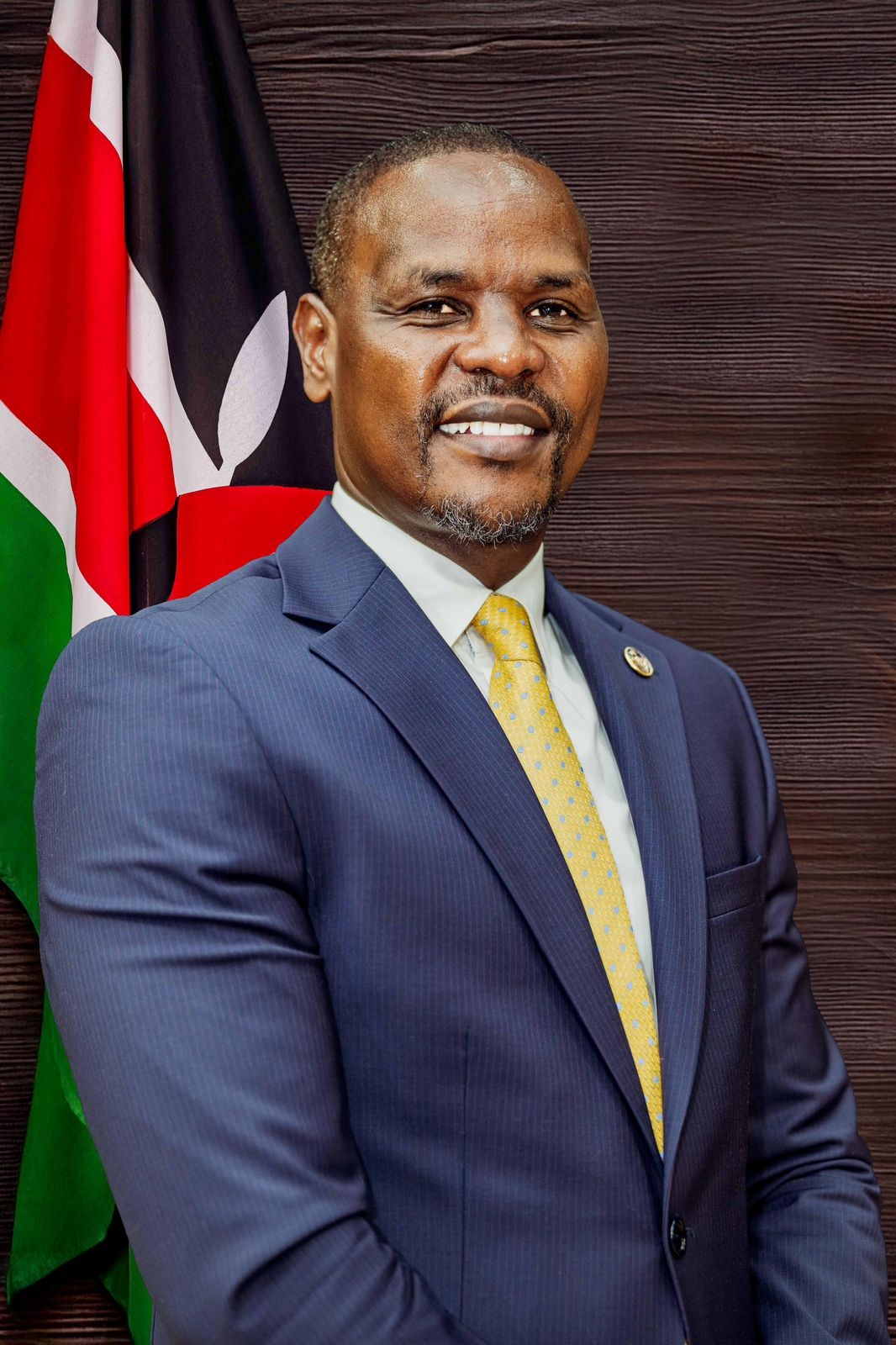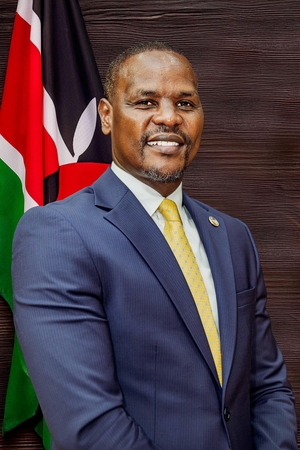 Festus K. Ng’eno, principal secretary for Kenya’s State Department for Environment, Climate Change and Forestry (Embassy of Kenya)
Festus K. Ng’eno, principal secretary for Kenya’s State Department for Environment, Climate Change and Forestry (Embassy of Kenya) Kenya sees South Korea as a vital partner in driving green growth, clean energy and sustainable development, said Festus K. Ng’eno, principal secretary for Kenya’s State Department for Environment, Climate Change and Forestry, in an interview with The Korea Herald.
Ng’eno was in Seoul to attend the Global Green Growth Week — a conference hosted by the Global Green Growth Institute that brings together policymakers and experts to promote sustainable and inclusive development.
Ng’eno said Korea’s green innovation and circular economy experience align with Kenya’s Green Economy Strategy and Implementation Plan and Bottom-Up Economic Transformation Agenda, and stronger ties can accelerate Kenya’s shift to clean technologies and climate-smart infrastructure.
“Kenya contributes vast experience in renewable energy and nature-based solutions, while South Korea offers world-class expertise in technology, green innovation and sustainable urban development,” he told The Korea Herald.
“Through partnerships in technology transfer, capacity building and green investment, we can create mutually beneficial opportunities that address the climate crisis while supporting livelihoods and inclusive growth.”
Ng’eno noted that both countries, as P4G founders, bring complementary strengths to tackle climate change through adaptable, inclusive solutions.
“Kenya and Korea bring unique strengths to the table,” Ng’eno said.
Ng’eno underlined Kenya-Korea collaboration in clean energy and green technology and urged multilateral climate funds to become more accessible.
“We invite South Korea to join Kenya in urging global climate funds to enhance flexibility and scale of financing and to harmonize procedures, which remain significant barriers to accessing climate finance,” he said.
Ng’eno called Kenya’s partnership with GGGI “a cornerstone of climate diplomacy,” supporting green finance and sustainable development, with joint projects in e-mobility, climate-smart agriculture, carbon and green hydrogen.
Ng’eno said Korea’s low-carbon expertise offers valuable models for Kenya, noting that partnerships with GGGI and the Korea International Cooperation Agency ensure green investments align with Vision 2030. He stressed fair, inclusive technology transfer that empowers local industries and supports data-driven, people-centered climate policies.
“Kenya’s people-centered approach, exemplified by the FLLoCA (Financing Locally Led Climate Action) program, places local communities, women and youth at the center of climate governance,” Ng’eno said.
“Through participatory risk assessments and direct access to climate finance, we ensure that resources reach those most affected by climate impacts,” he said.
“By combining our efforts, Kenya and South Korea can build resilient economies, protect our planet for future generations and combat climate change. Together, we can pave the way for a sustainable and prosperous future,” Ng’eno concluded.
sanjaykumar@heraldcorp.com
